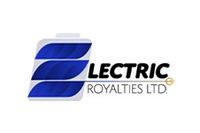Cobalt Demand to Rise Steadily as New Projects Proceed
Oversupply has been depressing cobalt prices this year, and with new projects slated to bring more than 7 percent of current world production online by next year, the situation is expected to worsen. But with the Congo and China controlling most of the world’s cobalt supply, there is room for other producers of this critical mineral.
There is also the fear that China, who supplies the bulk of cobalt to the United States and accounts for the lion’s share of the mineral’s refinement, could curtail exports, justifying the need for new mines to come on board.
The project closest to coming online is the Ambatovy mine in Madagascar, a partnership between four companies: Sherritt International (TSX:S) (40 percent), SNC-Lavalin (TSX:SNC) (5 percent), Japan’s Sumitomo (TSE:8053) (27.5 percent), and Korea Resources (27.5 percent). Ambatovy is forecast to produce about 60,000 tonnes of refined nickel and 5,600 tonnes of refined cobalt every year. Production is expected to commence in late 2012 or early 2013.
Construction at Formation Metals‘ (TSX:FCO) Idaho cobalt project is expected to completed by year-end with “commissioning [and] production to follow soon after,” the company’s website states. The mine is forecast to produce 1,525 tons of cobalt a year over a minimum ten-year mine life. That amounts to about 3.3 percent of the world’s current production of cobalt. Formation says it will be the only high-purity cobalt manufacturer in North America when it begins production.
Puget’s near-term venture in Ontario
Puget Ventures (TSXV:PVS), an explorer focused on cobalt in Canada and Russia, has a near-term cobalt project at Werner Lake in Ontario.
“Werner Lake is an advanced exploration and development project with a near term production focus,” the company said in its latest earnings release. “It is anticipated that continued drilling results from the company’s ongoing operations will be used along with historical data to produce a NI 43-101 Resource Estimate.”
The statement adds that Puget has requested that AGP Mining Consultants, hired to prepare a resource estimate, “temporarily halt their work in completing the resource estimate until the Pafra Acquisition has been completed, in order to preserve capital.” In May, Puget entered into a strategic partnership with Beijing AXHA Investment (Anhua) (whose parent company is s CITIC Anhua Group). The partnership, which has yet to be finalized, will facilitate the Pafra acquisition. With the completion of the transaction, Puget will focus on advancing the development of the acquired Karakul Cobalt project in the Republic of Altai in Russia. Upon completion of the Pafra transaction, Puget will be renamed Global Cobalt.
Erin Chutter, President and CEO of Puget commented: “In developing this tactical union with CITIC Anhua, the Company is laying the foundations for a team best suited to advance the world-class Karakul cobalt assets. This is a significant step forward for Puget Ventures expansion into becoming a leader in the strategic metals sector.”
Oversupply a concern
More than two-thirds of the world’s cobalt, which is usually a by-product of copper and nickel mining, is supplied by the Democratic Republic of the Congo. Most of that is refined in China. While industry observers say more stable sources of cobalt are needed, the question of oversupply remains.
World cobalt production in 2011 was estimated at 98,000 tonnes, according to the US Geological Survey. Ambatovy and Formation could add about 7,125 tonnes a year starting next year. That’s about 7.2 percent of current global production.
London-based CRU forecast that cobalt markets are going to continue to suffer from oversupply and weak prices until at least last year. Demand for cobalt is expected to rise at about 7 percent year-on-year to over 100,000 tonnes by 2016, driven mainly by demand for chemicals for the battery industry and superalloys for aircraft engines. Cobalt production is also anticipated to remain aggressive due to ambitious projects with production exceeding 100,000 tonnes annually coming online.
Securities Disclosure: I, Karan Kumar, hold no direct investment interest in any company mentioned in this article.


